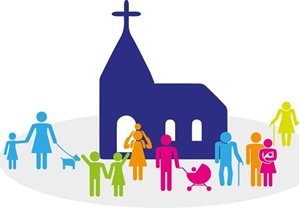We can be thankful for the individual expertise and experience of committee members. They may have gained this from the construction industry, the world of accounting and finance or other relevant practical experience.
Congregational committees have great responsibilities. Wisely deciding on the spending of thousands, tens of thousands, sometimes even hundreds of thousands of pounds. Remembering that each penny has been donated generously to fulfil God’s purposes for his church. Looking after maintenance of large buildings and ensuring the health and safety of all who use them. Sometimes delivering major building projects. Providing practical support for the spiritual decisions of the kirk session. Doing all this as a team, making wise decisions collectively according to God’s will and for his glory.
The Presbyterian Church in Ireland Code 47 (2) outlines the duties of the congregational committee including:
administering all funds belonging to the congregation, administering and taking care of all property belonging to the congregation, licensing the use of church premises by others, promoting the United Appeal and managing the graveyard (if there is one).
 Something that may be more difficult to learn prior to joining a congregational committee is the art of collective decision making. Elders will be familiar with a team approach to decision making but many committee members will not unless they have experienced it in another sphere in the business world or by serving on a charity board.
Something that may be more difficult to learn prior to joining a congregational committee is the art of collective decision making. Elders will be familiar with a team approach to decision making but many committee members will not unless they have experienced it in another sphere in the business world or by serving on a charity board.
The following are some principles for making good decisions together:
- Everyone has an equal vote in the decision at hand. This is true even if one or two are more knowledgeable about the subject. Because all members of committee are collectively responsible for the decision, they need to know enough about what is presented to them to understand it and make a wise decision. If someone with more expertise and knowledge is proposing a particular course of action, they need to make sure they explain it well and are open to questions.
- Presenting options is helpful for team decision making.It is better to be able to discuss pros and cons of different options (including the option of taking no action) than to feel under pressure to accept only one course of action. One obvious example of this is obtaining at least two quotes for work which needs to be done on the church building or manse. This involves more work than obtaining one quote but the integrity of the committee as stewards of God’s church requires it.
- Create time and space for listening, questions, discussion and prayerful reflection. Sometimes decisions can be too rushed. Make sure that more time is given to larger decisions. It can be helpful to discuss a major decision at one meeting and intentionally leave the decision making until the following meeting to allow time for prayer and reflection. Creating policies for commonly occurring issues and delegating minor decisions can avoid wasting time on more routine matters.
- Don’t create awkwardness by ignoring conflicts of interest.If someone on the committee has a family connection or other close relationship with a person or business being discussed they should declare it and remove themselves from the meeting for that item of the agenda. It’s much easier that way than having to ask them.
Further resources
A suite of resources on relating well together as a committee can be found here. The resource on healthy decision making is particularly helpful for both congregational committees and kirk sessions.
Although members of congregational committees are not charity trustees (that is the role of members of kirk session to which the committee is accountable), the decisions made by the committee are directly related to the charitable purpose of the congregation. The ‘Code of Good Governance’ has many useful principles to apply.
Other PCI resources on the practicalities of finance and property can be found here.
 Tom Finnegan is PCI's Training Development Officer.
Tom Finnegan is PCI's Training Development Officer.